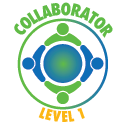Honor Deming's 14 Points through Modular Kaizen
Presented by: Grace Duffy, Management & Performance Systems
Area of Focus: Basics and Session Level: Basic
An early lesson in ASQ’s Introduction to Quality training covers the 14 Points, the basis for transformation of American industry, introduced by W. Edwards Deming in his 1982 publication. “Out of the Crisis.” He further explored the 14 Points in “The New Economics” in the final year of his life in 1993. He clarified the impact of integrating the 14 Points to the role of a people manager after organizational transformation in his Theory of Profound Systems. Like Deming’s focus in quality improvement, Modular Kaizen uses a systematic blend of techniques and leadership to establish a culture of Quality Improvement within the organization. Deming approached quality starting with data, from the “bottom up.” Modular Kaizen, from the perspective of Joseph Juran, approaches quality from the “top down.” Where you start depends on your leadership style. No matter what, we must create a repeatable, reliable, sustainable system of planning, implementation, improvement, and control within the organization, and our complete value chain. This session introduces Modular Kaizen, associates Deming’s 14 Points to the leadership and human factors approach of Modular Kaizen and engages participants in discussion applying the 14 Points and leadership techniques of Modular Kaizen.
@Trish Borzon Glad you like it. We have been using this for a colossal piece of a time now and it is clearly going charmingly. ACAeronet Portal Login
Presented by: Grace Duffy, Management & Performance Systems
Area of Focus: Basics and Session Level: Basic
An early lesson in ASQ’s Introduction to Quality training covers the 14 Points, the basis for transformation of American industry, introduced by W. Edwards Deming in his 1982 publication. “Out of the Crisis.” He further explored the 14 Points in “The New Economics” in the final year of his life in 1993. He clarified the impact of integrating the 14 Points to the role of a people manager after organizational transformation in his Theory of Profound Systems. Like Deming’s focus in quality improvement, Modular Kaizen uses a systematic blend of techniques and leadership to establish a culture of Quality Improvement within the organization. Deming approached quality starting with data, from the “bottom up.” Modular Kaizen, from the perspective of Joseph Juran, approaches quality from the “top down.” Where you start depends on your leadership style. No matter what, we must create a repeatable, reliable, sustainable system of planning, implementation, improvement, and control within the organization, and our complete value chain. This session introduces Modular Kaizen, associates Deming’s 14 Points to the leadership and human factors approach of Modular Kaizen and engages participants in discussion applying the 14 Points and leadership techniques of Modular Kaizen. Mynordstrom Portal
It appears that the passage is discussing the 14 Points introduced by W. Edwards Deming in his 1982 publication "Out of the Crisis," which served as the basis for the transformation of American industry. The passage notes that Deming further explored these 14 Points in his book "The New Economics" in 1993 and clarified their impact on the role of a people manager after organizational transformation in his Theory of Profound Systems.
The passage goes on to discuss how Modular Kaizen, a systematic approach to quality improvement, uses a blend of techniques and leadership to establish a culture of quality improvement within an organization. The approach can either start from the "bottom up" (starting with data) or the "top down" (starting with leadership), depending on the leader's style. The goal is to create a repeatable, reliable, and sustainable system of planning, implementation, improvement, and control within the organization and the complete value chain.
Overall, the passage emphasizes the importance of integrating the 14 Points with leadership and human factors approaches to quality improvement, such as those used in Modular Kaizen, to drive organizational transformation and establish a culture of quality improvement.
@John Riley Thanks for sharing, I found a lot of interesting information here. A really good post, very thankful and helpful that you will write many more posts like this one. Wyndham Rewards Login






